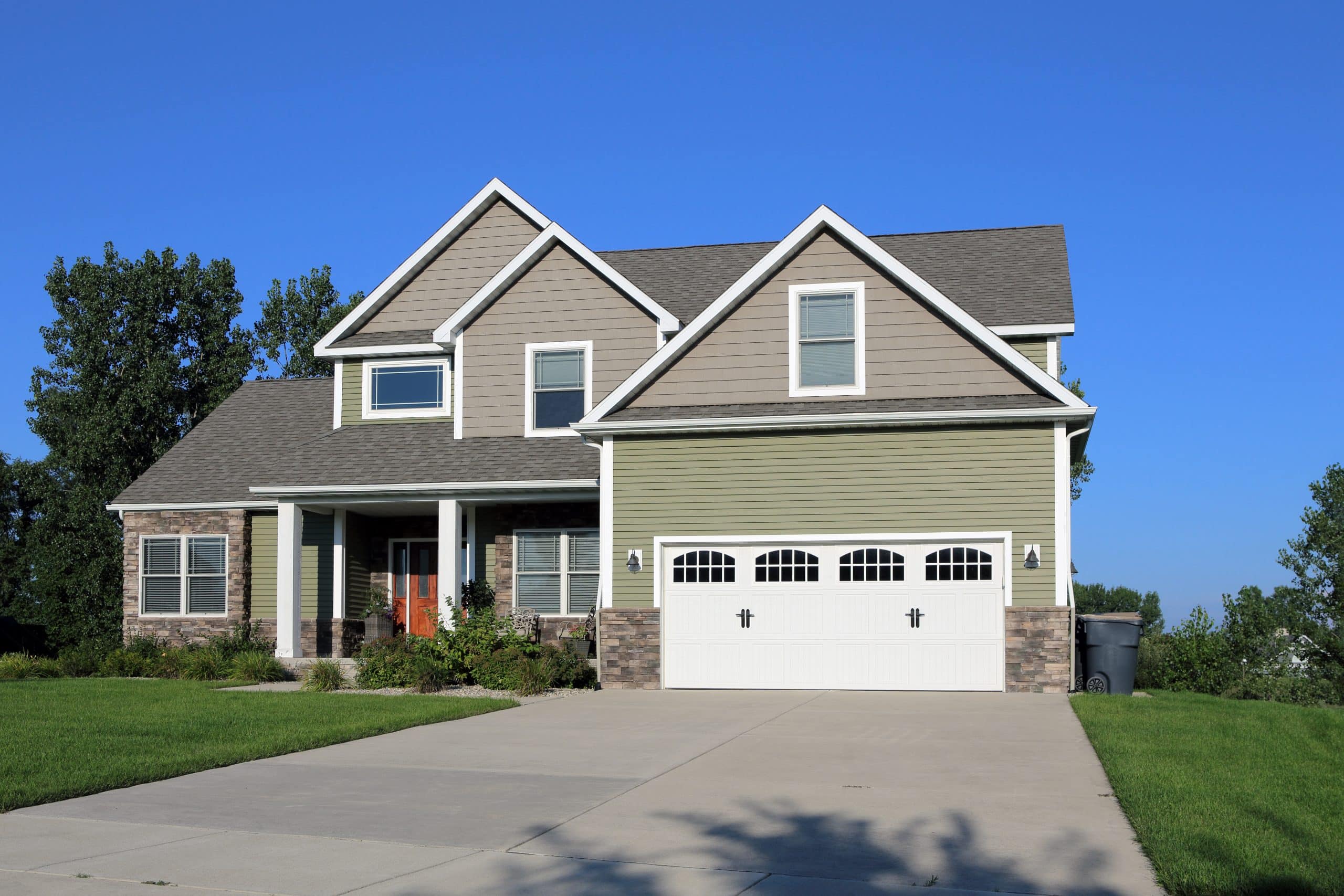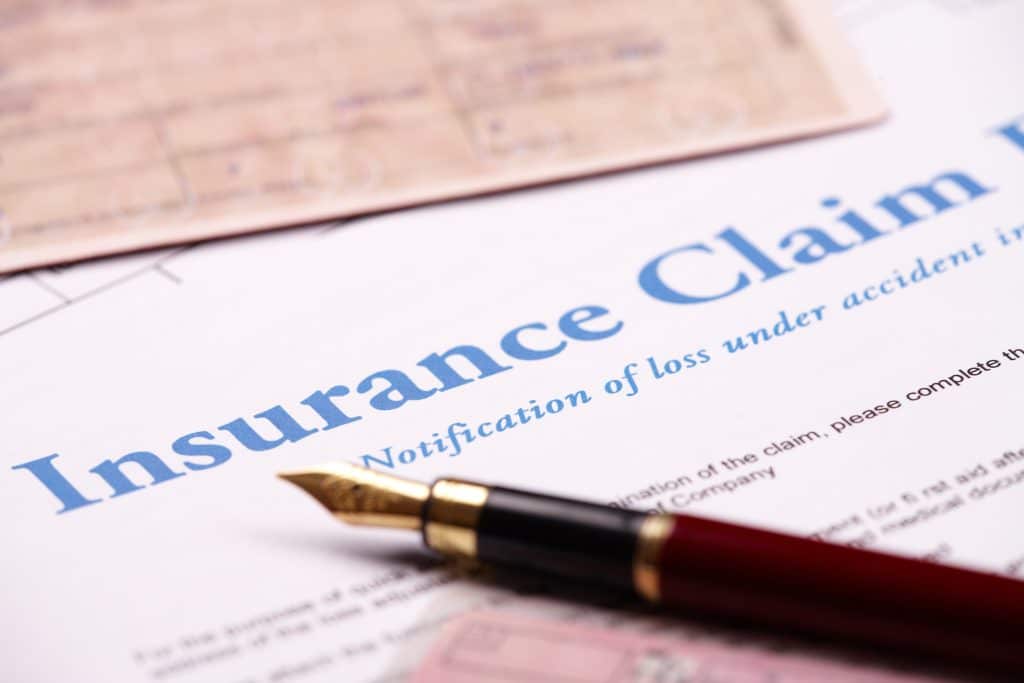
Who are the best high-risk homeowners insurance companies to look at?
Finding homeowners insurance can be a challenge, but it becomes even more daunting if your home is considered high-risk. Many homeowners turn to search engines, expecting a straightforward list of companies that cater to their specific needs and actually receive an approval from an underwriter. Unfortunately, what they often find are listings of insurance providers that don’t actually specialize in high-risk coverage. This misdirection only adds to the stress and frustration of an already difficult situation. If you’re struggling to find the best high-risk homeowners insurance, it’s essential to understand why the traditional approach might not work for you and how to find the coverage you need.

Understanding High-Risk Homeowners Insurance
High-risk homeowners insurance is designed for properties that face a higher likelihood of claims. This can be due to various factors, including location in a disaster-prone area, a history of frequent claims, or the condition and age of the home. Mainstream insurance carriers often avoid these high-risk policies because they represent a greater financial risk. This leaves homeowners searching for alternatives, often without clear guidance.
FAQs About the Best High-Risk Homeowners Insurance
What is high-risk homeowners insurance?
High-risk homeowners insurance is a type of policy designed for properties that face greater than average risks due to factors like location, construction type, or past claims history. These risks can include natural disasters, older homes, or unique property features that make standard insurance insufficient.
Why might my home be considered high-risk?
Your home might be considered high-risk due to its location in a disaster-prone area (such as flood zones or wildfire regions), an older construction, a history of frequent insurance claims, or having unique architectural features that complicate repairs or rebuilding.
What are surplus lines insurers?
Surplus lines insurers are companies that provide coverage for high-risk properties that traditional insurers may refuse. They are not bound by the same state regulations as standard insurers, allowing them more flexibility to tailor policies to the unique needs of high-risk homeowners.
What is a FAIR Plan, and how does it work?
A FAIR Plan (Fair Access to Insurance Requirements) is a state-mandated program that offers insurance to homeowners who cannot obtain coverage through the standard market. Each state’s FAIR Plan varies but typically provides basic coverage for high-risk properties. Homeowners must demonstrate they have been denied coverage by traditional insurers to qualify.
Can an independent insurance agent help me find high-risk homeowners insurance?
Yes, an independent insurance agent can be very helpful in finding high-risk homeowners insurance. They have access to a wide range of insurers, including those specializing in high-risk properties, and can provide personalized advice to match you with the best coverage options for your specific needs.
How can I lower my high-risk homeowners insurance premiums?
To lower your high-risk homeowners insurance premiums, consider implementing risk mitigation measures such as installing security systems, upgrading your home’s infrastructure to withstand natural disasters, and maintaining a good credit score. Additionally, shopping around and comparing quotes from different insurers can help you find the most competitive rates.

The Problem with Traditional Carriers
Many traditional insurance companies do not offer the best high-risk homeowners insurance coverage, despite being listed on websites that claim they do. This mismatch happens because:
- SEO Optimization: Many websites are designed to attract as much traffic as possible, often prioritizing search engine optimization (SEO) over accurate information. They may list popular insurance companies to attract clicks, even if those companies don’t provide the services advertised.
- Affiliate Marketing: Some sites earn commissions by directing visitors to certain insurers, regardless of whether those insurers offer high-risk policies.
- Lack of Specialization: Traditional carriers often lack the specialized underwriting required for high-risk properties. They focus on low-risk, standardized policies to maintain profitability.

Finding the Right Coverage From the Best High-Risk Homeowners Insurance Companies
Securing the best high-risk homeowners insurance requires a strategic approach to ensure your property is adequately protected. High-risk homes often face challenges in obtaining coverage due to their increased likelihood of claims, whether from natural disasters, unique structural issues, or location-specific risks. Here are some key steps to help you find the right coverage from the best high-risk homeowners insurance companies:
Look for Surplus Lines Insurers
Surplus lines insurers specialize in providing coverage for high-risk properties that standard insurance companies may decline. These insurers are not bound by the same state regulations as traditional carriers, allowing them to take on higher risks. Their flexibility enables them to offer tailored policies that address the specific needs of high-risk homeowners. When considering surplus lines insurers, it’s important to:
- Understand Their Expertise: Surplus lines insurers have extensive experience with non-standard risks, which makes them well-equipped to handle unique property challenges. They can offer more customized coverage options, which are crucial for high-risk properties.
- Evaluate Their Financial Stability: Given their specialization, it’s vital to assess the financial health of surplus lines insurers. Look for companies with strong ratings from independent agencies such as A.M. Best, which indicate their ability to pay out claims even after significant disasters.
- Seek Customization: These insurers are known for their ability to tailor policies. Work closely with their underwriters to ensure your policy covers all potential risks specific to your property, from environmental hazards to unique structural features.
Explore State FAIR Plans
The Fair Access to Insurance Requirements (FAIR) Plan is a state-mandated program designed to provide insurance coverage for homeowners who cannot secure it through the standard market. FAIR Plans vary by state but generally offer essential coverage for high-risk properties. Key points to consider include:
- Eligibility Criteria: Each state’s FAIR Plan has specific eligibility requirements. Typically, you must demonstrate that you have been denied coverage by standard insurers to qualify. Familiarize yourself with your state’s criteria to determine your eligibility.
- Coverage Limitations: While FAIR Plans provide a safety net for high-risk homeowners, their coverage might be more limited compared to private insurers. Review the policy details carefully to understand what is covered and consider supplemental policies if necessary.
- Application Process: The process for applying to a FAIR Plan can be more involved than standard insurance applications. Be prepared to provide detailed information about your property and any risk mitigation measures you have implemented.
Work with an Independent Insurance Agent
Independent insurance agents can be invaluable allies in your search for the best high-risk homeowners insurance. Unlike captive agents who represent a single insurer, independent agents have access to a broad range of insurance carriers, including those that specialize in high-risk properties. Here’s why working with an independent agent is beneficial:
- Access to Multiple Carriers: Independent agents can compare policies from various insurers to find the best coverage and rates for your specific situation. They have relationships with surplus lines insurers and other high-risk specialists, providing you with more options.
- Personalized Advice: An experienced independent agent can assess your unique needs and recommend the most suitable coverage. They can help you understand policy terms, coverage limits, and any exclusions, ensuring you make an informed decision.
- Claims Assistance: In the event of a claim, independent agents can act as advocates, guiding you through the process and working with the insurer on your behalf to ensure a fair and timely settlement.
Check Reviews and Ratings
Before finalizing your decision to purchase insurance from the best high-risk homeowners insurance companies, it’s crucial to research insurers and agents to ensure you are choosing reputable and reliable options. Here are some tips for evaluating insurers and agents:
- Customer Reviews: Look for feedback from other high-risk homeowners who have worked with the insurers you are considering. Pay attention to reviews that mention the ease of the claims process, customer service, and overall satisfaction.
- Independent Ratings: Organizations like A.M. Best, Moody’s, and Standard & Poor’s provide ratings that reflect an insurer’s financial stability and ability to pay claims. High ratings are indicative of strong financial health and reliability.
- Consumer Protection Endorsements: Check if the insurers or agents have endorsements from consumer protection organizations or industry watchdogs. These endorsements can provide additional assurance of their credibility and ethical practices.
- Detailed Research: Avoid overly generic websites and seek out detailed, specific information about the insurers’ offerings. Reputable companies and agents will provide comprehensive information about their policies and services.

The Benefits of Human Underwriting with the Best High-Risk Homeowners Insurance Companies
One of the key advantages of surplus lines insurers and state FAIR Plans is the human element in underwriting. Traditional carriers often rely heavily on algorithms and rigid criteria to assess risk. In contrast, surplus lines insurers and FAIR Plans use experienced underwriters who can evaluate the unique aspects of your property and circumstances. This personalized approach can make the difference between securing coverage and being denied by the best high-risk homeowners insurance companies.
In the world of insurance, particularly for high-risk properties, the importance of human underwriting cannot be overstated. While algorithms and automated systems are designed to streamline the underwriting process, they often fall short when it comes to recognizing the nuanced factors that influence a property’s risk profile. This is where human underwriters excel, bringing a level of discernment and flexibility that technology alone cannot match.
Personalized Risk Assessment
Human underwriters have the expertise to delve into the specifics of your property, taking into account factors that might be overlooked by automated systems. They can consider the history of the property, its unique features, and the surrounding environment. For example, a property with a history of minor, easily rectifiable issues might be flagged by an algorithm as high-risk, but a human underwriter could recognize the efforts made to mitigate these risks, thus offering a more favorable assessment.
Flexibility and Understanding
The rigid criteria used by traditional insurance algorithms often lead to blanket rejections or exorbitantly high premiums for properties that don’t fit the standard mold. Human underwriters, on the other hand, can exercise discretion and judgment. They can engage in discussions with property owners, understand their unique situations, and adjust the underwriting process accordingly. This flexibility is particularly beneficial for those with unusual properties or those located in areas with specific risks that require a more tailored approach.
Building Relationships and Trust
Another significant benefit of human underwriting is the potential for building relationships and trust between insurers and clients. When an underwriter takes the time to understand a client’s needs and circumstances, it fosters a sense of partnership. Clients feel more confident knowing that their insurer is not just a faceless entity relying on impersonal data, but a group of professionals committed to providing them with the best possible coverage. This trust can lead to long-term client loyalty and satisfaction.
Navigating Complex Risks
High-risk properties often come with a variety of complexities that standard algorithms are not equipped to handle. Human underwriters have the training and experience to navigate these complexities effectively. They can identify mitigating factors that reduce risk, such as updated safety features or community measures that enhance property protection. This thorough evaluation can result in more accurate risk assessments and more appropriate coverage solutions.
Enhanced Claim Support
In the event of a claim, having a policy underwritten by a human can also lead to a smoother, more empathetic claims process. Human underwriters, familiar with the specific details of the policy and the property, can provide insights and support that automated systems cannot. This can expedite the claims process and ensure that clients receive fair and timely settlements.
Innovative Solutions
Human underwriters are also more likely to devise innovative solutions to unusual or complex insurance needs. They can collaborate with other experts, leverage their professional networks, and use their industry knowledge to craft policies that are both comprehensive and cost-effective. This innovative approach is particularly valuable in the surplus lines and state FAIR Plans, where standard policies often do not suffice.
Balancing Technology and Human Expertise
While technology and data analytics play a crucial role in modern underwriting, the human element ensures that the process remains adaptive and responsive. Surplus lines insurers and state FAIR Plans that integrate human underwriting with advanced technology can offer the best of both worlds—efficient processing and personalized service. This balanced approach ensures that high-risk properties are accurately assessed and adequately insured, providing peace of mind to property owners.
How Home Insurance Alternatives Can Help
Navigating the complexities of the best high-risk homeowners insurance companies can be overwhelming. This is where Home Insurance Alternatives steps in. We connect you with expert agents who specialize in high-risk properties, ensuring you find the best possible coverage tailored to your specific situation. Our goal is to make the process seamless and stress-free, helping you protect your home with confidence.

Need help finding the Best High-Risk Homeowners Insurance Companies?
If you’re struggling to find the best high-risk homeowners insurance, remember that traditional carriers may not be the solution. Instead, focus on surplus lines insurers, state FAIR Plans, and independent agents who understand the complexities of high-risk properties. By taking a more targeted approach, you can find the coverage you need and alleviate some of the stress associated with protecting your home.
Best High-Risk Homeowners Insurance Companies Table of Contents
Recent Posts
2024- Are Burglary Claims Still a High Risk?
Burglaries are a persistent threat to homeowners across the U.S., with over one million break-ins occurring annually. Even though burglary rates have decreased...
2024 Atlantic Hurricane Season Predictions
All Early Predictions Call for a Busy 2024 Atlantic Hurricane Season Forecasters are predicting an exceptionally active Atlantic hurricane season in 2024. The...
Top High-Risk Home Insurance Factors
When you own a home, one of the most important things you need is home insurance. This insurance helps protect your house and...




